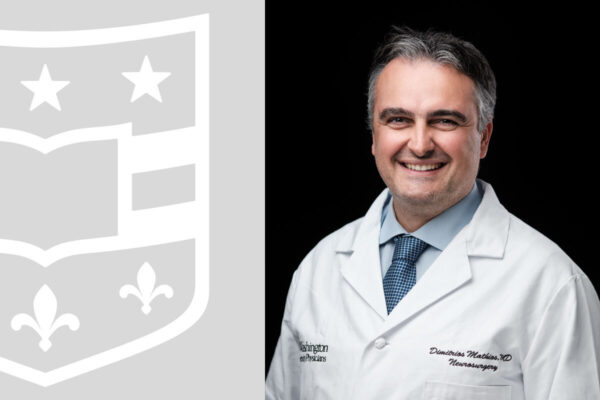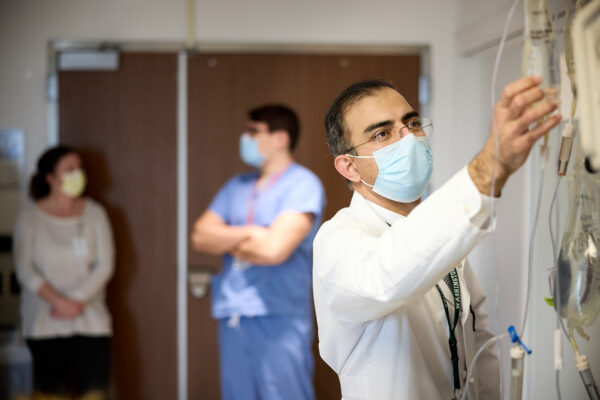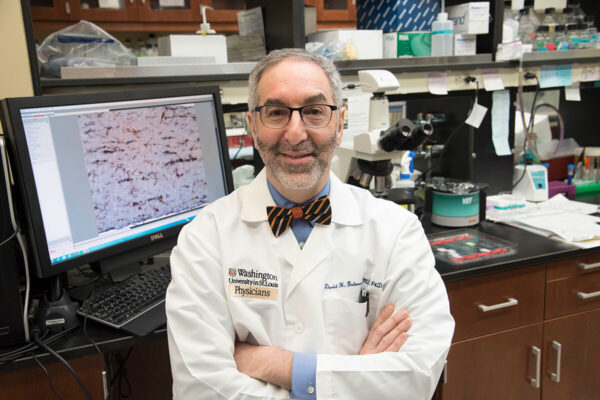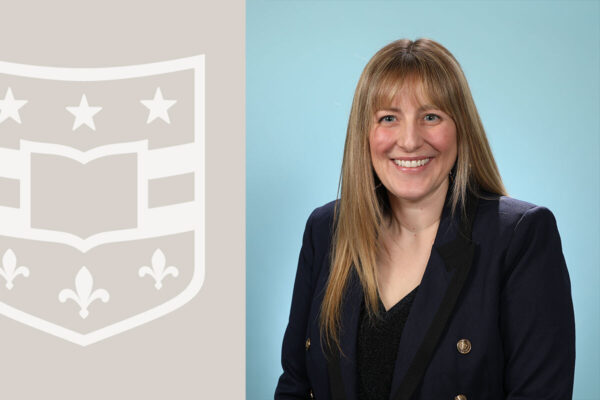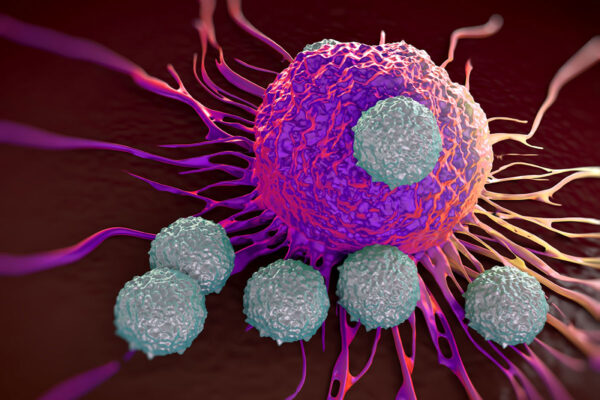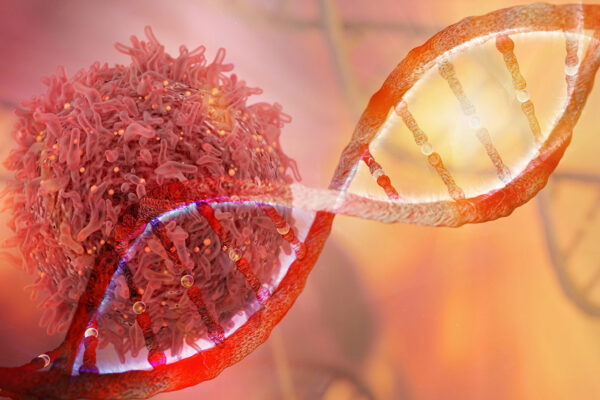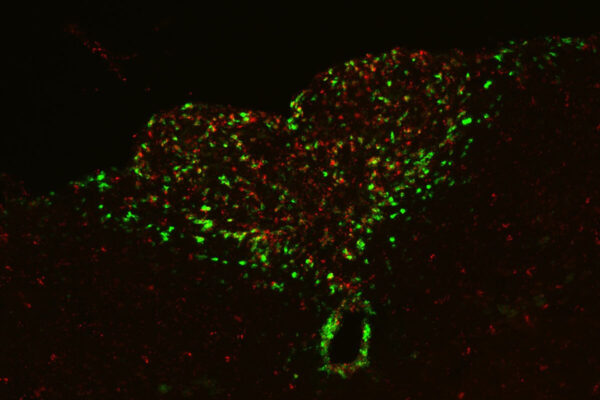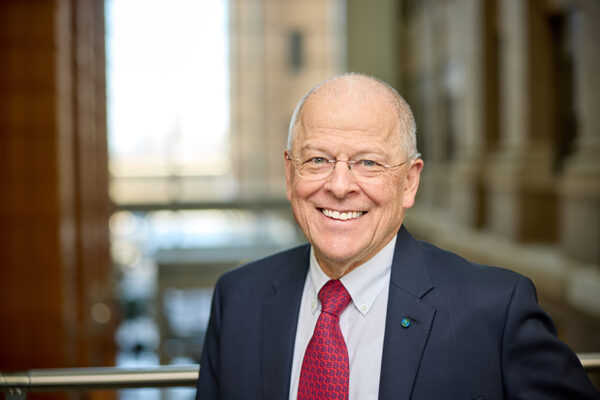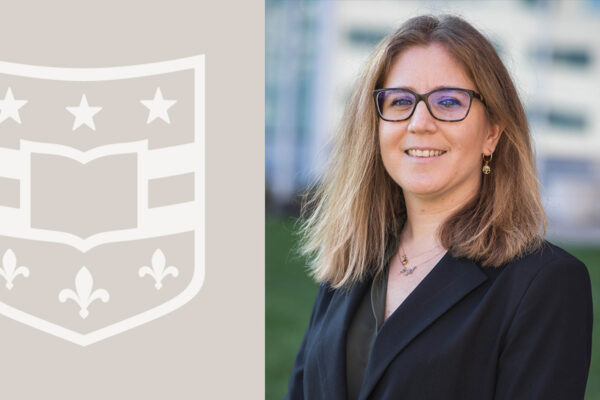Machine learning can improve detection of brain cancer from blood
WashU Medicine neurosurgeon Dimitrios Mathios, MD, has developed a liquid biopsy that is aided by machine-learning tools to improve the detection of brain cancers.
Innovative immunotherapy shows promise against aggressive T cell cancers
An international clinical trial led by WashU Medicine researchers shows an innovative CAR-T cell immunotherapy is promising against aggressive T cell cancers and has manageable side effects.
Understanding genetic factors behind a pediatric brain tumor
Researchers at WashU Medicine conducted a study to understand the genetic factors behind a pediatric brain tumor. Their findings could lead to new targeted therapies.
Study examines overlap in causes of cancer, neurodevelopmental disorders
A new analysis, led by WashU Medicine researchers and published in Cell Genomics, examines how certain proteins in human cells are implicated in both cancer and neurodevelopmental disorders, but behave differently, complicating potential interventions.
Immunotherapy improves survival of patients with locally advanced head and neck cancer
An international clinical trial co-led by WashU Medicine found that the immunotherapy drug pembrolizumab added to standard-of-care therapy improved survival for patients with locally advanced head and neck cancer. Pembrolizumab helps the patient’s own immune cells attack and kill tumor cells.
Study sheds light on how inherited cancer mutations drive tumor growth
A new study led by WashU Medicine researchers takes a deep dive into inherited genetic mutations. The findings have implications for determining an individual’s inherited cancer risk and informing potential new strategies for prevention, early detection and treatment.
Brain pathway links inflammation to loss of motivation, energy in advanced cancer
Researchers at WashU Medicine described, in mice, a brain pathway that connects the loss of motivation characteristic of advanced cancer to cancer-related inflammation and identified opportunities to block this pathway and restore motivation.
A closer look at biomolecular ‘Silly Putty’
Researchers at Washington University have developed a method to peer into biomolecular condensates, which could lead to a better understanding of condensate functions and their impairment in cancers and neurodegeneration.
Colditz receives award from Susan G. Komen
Graham A. Colditz, MD, DrPH, the Niess-Gain Professor of Surgery and director of the Public Health Sciences Division in the Department of Surgery at WashU Medicine, has been awarded the Brinker Award for Scientific Distinction in Population Science.
Improving breast cancer risk assessment for Black women
The National Cancer Institute, part of the National Institutes of Health (NIH), has awarded Aimilia Gastounioti, an assistant professor at WashU Medicine, a five-year $3 million grant to improve breast cancer risk assessments for Black women.
Older Stories
